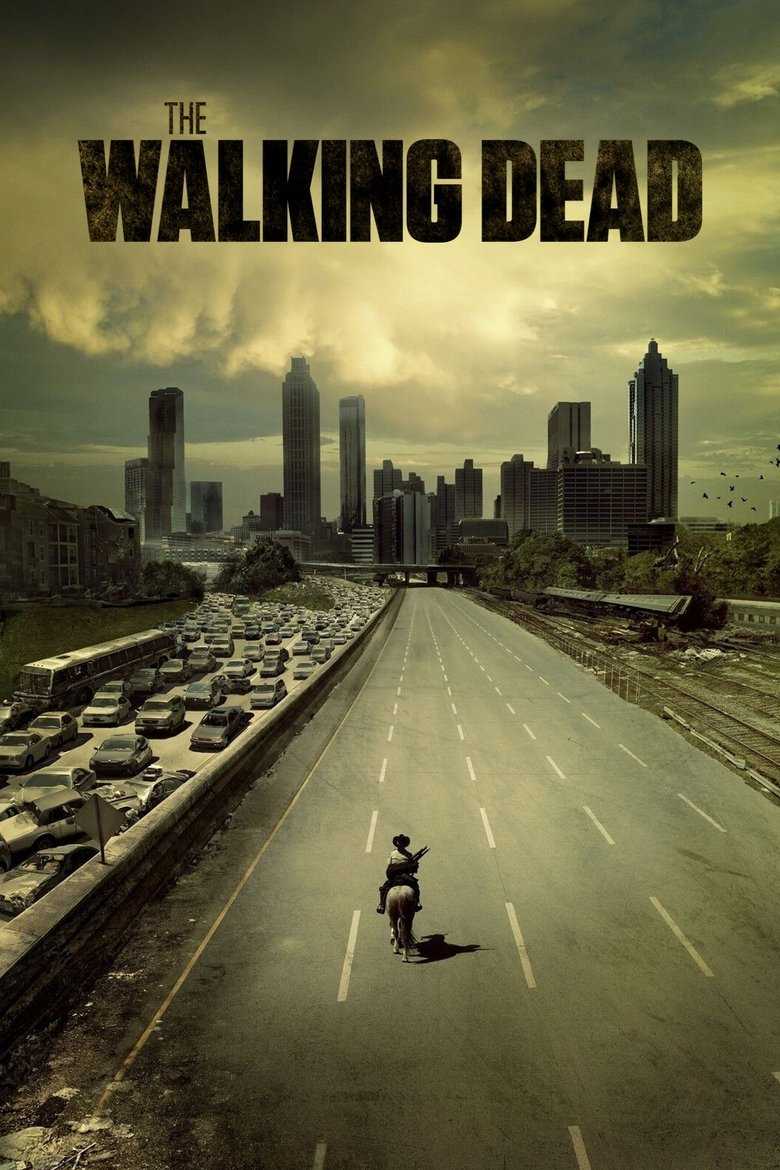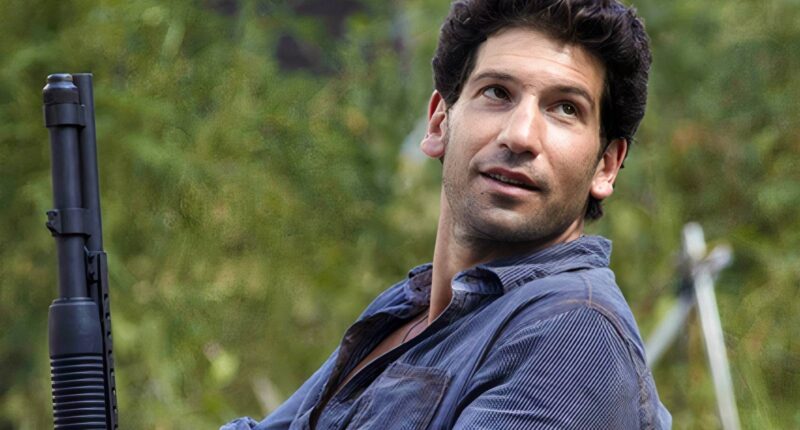When The Walking Dead season 1 premiered in 2010, it was immediately clear that AMC had stumbled upon something special. This wasn’t just another zombie thriller – it was prestige television wrapped in genre storytelling, with compelling characters, gut-wrenching moments, and the kind of atmosphere that made it feel bigger than most movies. The first six episodes proved television had changed forever.
More than a decade later, it’s hard to argue with the influence of The Walking Dead. Eleven seasons, multiple spinoffs, and countless imitators have cemented its legacy. Still, rewatching season 1 in the shadow of everything that followed is often a disorienting experience. What once felt groundbreaking can now seem inconsistent with where the series ultimately went by the time the final episode aired in 2022.
That’s not to say it isn’t still one of the best seasons the show ever produced. Season 1 is tight, atmospheric, and endlessly rewatchable, but certain elements stand out as awkward reminders of how much The Walking Dead changed. These issues don’t ruin the experience, but they’re impossible to miss when revisiting AMC’s zombie epic from the beginning.
Season 1 Dangled Several Plot Ideas That Went Nowhere
Early Teases Of Smarter Zombies And Strange Foreshadowing Went Completely Ignored
Rewatching The Walking Dead season 1 means coming face-to-face with plot threads that were abandoned almost instantly. The most glaring example is the subtle suggestion that the undead might be capable of more than just stumbling and biting. In the pilot episode “Days Gone Bye,” Morgan’s wife seems to recall memories of her former life – a chilling moment that was only semi followed up on by the appearance of variant zombies many seasons and spin-offs later.
Then there’s Jim (Andrew Rothenberg), who experiences a haunting moment that feels eerily like prophecy. His dreamlike vision of digging graves ahead of the Atlanta camp attack carries an otherworldly weight, hinting at a supernatural element. Unfortunately, nothing ever comes of it, leaving the scene to feel more like a strange anomaly than part of a bigger plan.
These dropped threads don’t ruin the story, but they stand out badly when rewatching. Knowing the series never returned to the idea of smart walkers until decades later in The Walking Dead timeline makes the early hints feel like missteps rather than deliberate foreshadowing. Season 1 plants seeds that the franchise simply left to rot.
Rick’s Survivors Highlight How Much TWD Relied On Character Deaths
The Original Atlanta Camp Shows How Few Characters Actually Made It To The End
One of the hardest truths to accept on a TWD rewatch is just how expendable Rick Grimes’ (Andrew Lincoln) original group of survivors turned out to be. Outside of Daryl (Norman Reedus), Carol (Melissa McBride), and Morgan (Lennie James) – who wasn’t even part of the Atlanta camp full-time – the rest of season 1’s cast are long gone when The Walking Dead series finale arrives.
At the time, the frequent deaths kept the series thrilling and unpredictable. The emotional punch of losing characters like Dale (Jeffrey DeMunn) or T-Dog (IronE Singleton) reinforced the brutal world of The Walking Dead. However, rewatching season 1 makes it hard not to see most of the survivors as doomed, since only a tiny fraction of them actually matter in the long run.
This reliance on death as The Walking Dead’s primary source of drama becomes much more noticeable in retrospect. While it worked to keep tension high, it also robbed season 1’s survivors of lasting relevance. Knowing how things play out, the Atlanta camp feels less like the start of a long journey and more like a lineup of characters waiting their turn to be written off.
Lori Really Is As Frustrating As You Remember
Rewatching Season 1 Proves Lori’s Reputation As Divisive Is Well-Earned
Lori Grimes (Sarah Wayne Callies) has long been one of the most polarizing figures in The Walking Dead. Some fans sympathized with her impossible situation – raising a child in the apocalypse while her husband and best friend clashed over survival. Others found her inconsistent decisions and strained relationships exhausting. On a rewatch of season 1, it becomes clear why she’s such a divisive character.
Her complicated love triangle with Rick and Shane (Jon Bernthal) doesn’t help her case. What starts as a storyline with emotional potential quickly sours into melodrama. Lori’s inability to communicate clearly often escalates situations unnecessarily, making it easy to see why audiences struggled to embrace her.
The problem is that season 1 doesn’t give her much chance to shine beyond that conflict. While later seasons attempt to deepen her role, first impressions matter. On a rewatch, Lori’s flaws feel magnified, cementing her place as one of The Walking Dead’s most frustrating characters – especially compared to the complex and nuanced survivors who came later.
Frank Darabont Was Essential To The Show
Season 1’s Character-Driven Storytelling Owes Everything To Frank Darabont
Looking back, one of the clearest distinctions between season 1 and later years is the influence of showrunner Frank Darabont. Known for The Shawshank Redemption and The Mist, Darabont brought a cinematic, character-first sensibility to The Walking Dead. The opening six episodes reflect his fingerprints everywhere – from the quiet emotional beats to the deliberately paced storytelling.
Darabont’s focus was never just on zombies or gore. Instead, he emphasized the personal struggles of survival, making sure audiences cared about the people first and the apocalypse second. Scenes like Rick reuniting with Lori and Carl (Chandler Riggs) or Morgan grappling with his undead wife linger longer than the action because of that approach.
When Darabont exited after TWD season 1, the difference was noticeable. Later showrunners often leaned more heavily on shock value and spectacle, sometimes at the expense of the nuanced humanity that defined the debut season. Rewatching season 1 makes it clear just how crucial Darabont was to setting The Walking Dead apart from the start.
Shane Was One Of The Best Characters In All 11 Seasons
Jon Bernthal’s Portrayal Of Shane Made Him One Of TWD’s Strongest Figures
Few characters in The Walking Dead left as big an impression in as little time as Shane Walsh. Introduced as Rick’s best friend and eventual rival, Shane provided a layered, morally complex perspective that the series desperately needed. On a rewatch, it’s obvious just how much he elevated season 1 – and how much was lost when he was killed off early in season 2.
Shane’s descent into volatility gave The Walking Dead its first taste of human conflict that rivaled the horror of the undead. His complicated relationship with Lori, his tension with Rick, and his increasing ruthlessness made him fascinating to watch. Unlike many later villains, Shane was both sympathetic and terrifying.
Revisiting The Walking Dead season 1 underlines how much Jon Bernthal’s performance shaped the tone of the series. While his death was narratively necessary, it left a void. For all of TWD’s memorable villains, few matched Shane’s complexity, making him one of the best characters the franchise ever had.
The CDC Red Herring Is Still Irritating
Season 1’s Subplot Stands Out As Wasted Screen Time
The decision to end The Walking Dead season 1 with a detour to the Centers for Disease Control remains one of the series’ strangest creative choices. Dr. Jenner (Noah Emmerich) brings some temporary intrigue, but in the grand scheme, the CDC storyline goes absolutely nowhere. Rewatching the season today makes that clearer than ever.
The problem is that it takes up valuable screen time in an already short six-episode run. By focusing on scientific explanations and vague foreshadowing, the show strayed from its strongest elements – character drama and survival storytelling. The eventual revelation about everyone being infected could have come without the CDC subplot dragging things down.
Looking back, the CDC arc feels like a detour designed to give the season a climactic finale rather than a meaningful step in the larger narrative. While not unwatchable, it’s undeniably frustrating to revisit, knowing the storyline contributes nothing to the wider world of The Walking Dead.
TWD Worked Best With A Memorable Villain
The Lack Of A Strong Antagonist Makes Season 1 Feel Less Impactful
Season 1 of The Walking Dead is gripping, but its rewatch value takes a hit compared to later arcs because it lacks one key ingredient: a compelling human villain. The show’s most iconic seasons – featuring The Governor, Negan, or Alpha and the Whisperers – thrived on the tension of battling brutal human adversaries as much as the undead.
While Shane begins to fill that role in TWD season 2, season 1 never develops a memorable antagonist beyond walkers. This absence limits the drama, making much of the season feel like buildup rather than the kind of shocking, unforgettable television that came later. Even though the Atlanta camp attack raises the stakes, it lacks the personal intensity that defined later confrontations.
Rewatching The Walking Dead highlights how much the show improved when it leaned into complex human villains. Season 1’s lack of one makes it feel smaller and less iconic in hindsight, despite still being an excellent opening chapter to the saga.
The Walking Dead Was Better When It Was Simpler
The Stripped-Back Premise Of Season 1 Remains Unmatched In Its Effectiveness
Despite its flaws, rewatching The Walking Dead season 1 is a reminder of just how perfect its premise was. Rick waking up from a coma to a world overrun by zombies is one of the most gripping setups in television history. The first season thrives on that simplicity, letting atmosphere and raw survival drive the tension.
Later seasons of The Walking Dead became sprawling epics with political rivalries, sprawling communities, and near-constant power struggles. While these arcs expanded the world, they often came at the cost of the intimate storytelling that season 1 mastered. Rewatching the earliest episodes shows just how effective the stripped-back approach could be.
It’s why many fans still consider season 1 among the show’s best. Its minimalism, focus, and cinematic quality made The Walking Dead groundbreaking television. Even if the series evolved into something much bigger, season 1 proves that sometimes less really is more.

The Walking Dead
- Release Date
-
2010 – 2022
- Showrunner
-
Frank Darabont, Angela Kang, Scott M. Gimple, Glen Mazzara
-

Norman Reedus
Daryl Dixon
-

Melissa McBride
Carol Peletier


















